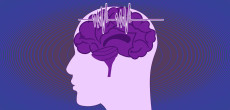- In today’s digital age, where text messages and emails rule over our interactions with others, the importance of writing by hand comes up as a round up integration of psychology and neuroscience.
The act of writing by hand goes beyond the limited communication, as it serves as a powerful reflection of our thoughts, emotions as well as our unique identities.
In today’s digital age, where text messages and emails rule over our interactions with others, the importance of writing by hand comes up as a round up integration of psychology and neuroscience.
By researching beneath the handwritten letters, we are able to find out a complex interconnection of cognitive processes that not only clarifies the way we express ourselves but also our perception of others.
Writing by hand is an action that incorporates our visual perception and memory. A lot of concentration is needed during the process of forming letters—holding a pen, applying pressure, and guiding it across a page.
The relationship between physical action and cognitive engagement sets handwriting as a bridge between the mind and body. Research has revealed that people who take notes using pen and paper significantly perform better compared to their digital counterparts, in information synthesis.
Read More
The way we write can reveal our weaknesses or confidence, by guiding our core thoughts onto the paper. The psychological effect of handwriting also shapes how we view others. The calligraphy of a person individual can bring forth instant conclusions, which often influences our impressions even before reading the content itself.
A beautifully hand written letter may lead us to viewing the writer as thoughtful, while quickly spread out handwriting can promote assumptions of carelessness or disorder.
The act of writing may serve as an exercise conducted to redirect attention amid internal chaos. Though technology has brought in a new era of digital communication, the worth of handwriting remains obviously true.
Many studies suggest that children who learn to write by hand develop better literacy skills as compared to those who don’t. Everyone’s unique handwriting becomes a visual representation of their identity.
This connection can improve one’s self-esteem, since individuals are able to identify beauty in their own imperfections.
Embracing one’s handwriting can signify reclamation of their identity. The study of handwriting is not static since it transforms with changes in the culture. In exploring handwriting through a psychological way, we are able to deeply understand how the ways in which we write reflect the complexities of being human.
Engaging with the hand written words encourages creativity among individuals overshadows substance, let us not forget the rich, language that flows from our pens, speaking large volumes of information about the minds and hearts behind them.












